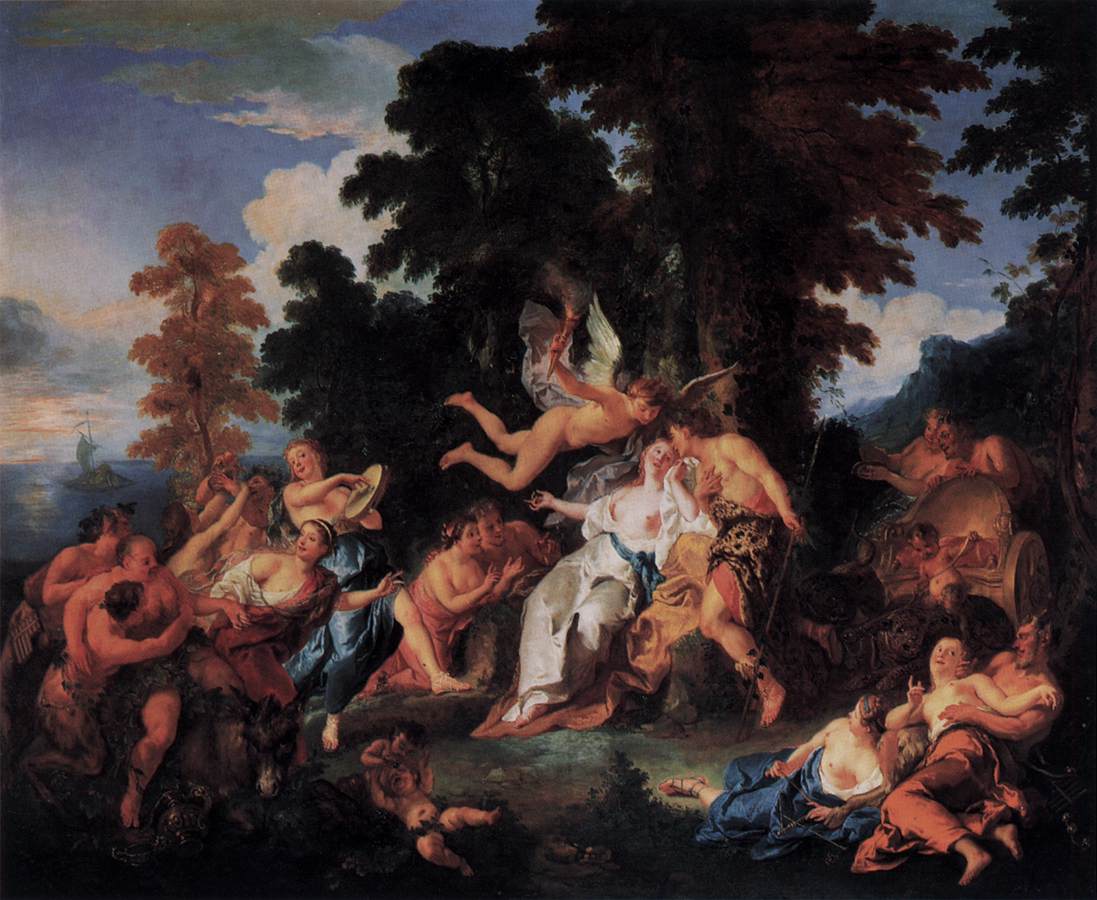Description
Bacchus and Ariadne, painted by artist Jean-François De Troy, is a masterpiece that captivates with its artistic style, composition, and use of color. With an original size of 140 x 165 cm, this painting presents an intriguing history and little-known aspects that make it even more fascinating.
De Troy's artistic style is characterized by his ability to capture beauty and movement in his works. Bacchus and Ariadne is no exception, as the artist manages to capture the grace and vivacity of the characters in every brushstroke. The use of smooth lines and graceful curves in the figures creates a sense of fluidity and dynamism, bringing the scene to life.
The composition of the painting is another highlight. De Troy uses a triangular arrangement to arrange the elements on the canvas. Bacchus, the god of wine and festivals, is in the center of the composition, surrounded by a group of nymphs and satyrs. Ariadne, the abandoned princess, stands out on the left side of the painting, capturing the viewer's attention. This balanced and harmonious arrangement creates a sense of order and aesthetic beauty.
Color plays a crucial role in Bacchus and Ariadne. De Troy uses a rich and vibrant palette, dominated by warm, saturated tones. Rich colors such as red, gold, and green add to the exuberant, festive atmosphere of the scene. In addition, the artist uses contrasts of light and shadow to highlight the figures and create a sense of depth in the painting.
The story of Bacchus and Ariadne also adds an intriguing element to this work. The painting depicts the moment when Bacchus finds Ariadne abandoned on the island of Naxos after Theseus abandoned her. Bacchus falls in love with her at first sight and decides to make her his wife. De Troy manages to capture the emotion and romance of this encounter in his painting, conveying the passion and desire through the facial expression and body language of the characters.
Among the lesser known aspects of Bacchus and Ariadne is the symbolism present in the painting. For example, the satyrs surrounding Bacchus represent wild nature and lust, while the nymphs personify beauty and sensuality. In addition, the work's use of mythological elements, such as ivy wreaths and animal courtship, adds layers of meaning and enriches the visual narrative.
In conclusion, Bacchus and Ariadne by Jean-François De Troy is a captivating painting that stands out for its artistic style, composition, and use of color. Through his depiction of a mythological story, De Troy manages to convey emotions and capture beauty in every detail. This masterpiece reveals little-known aspects and symbolism that make it a fascinating and enigmatic piece of art.

